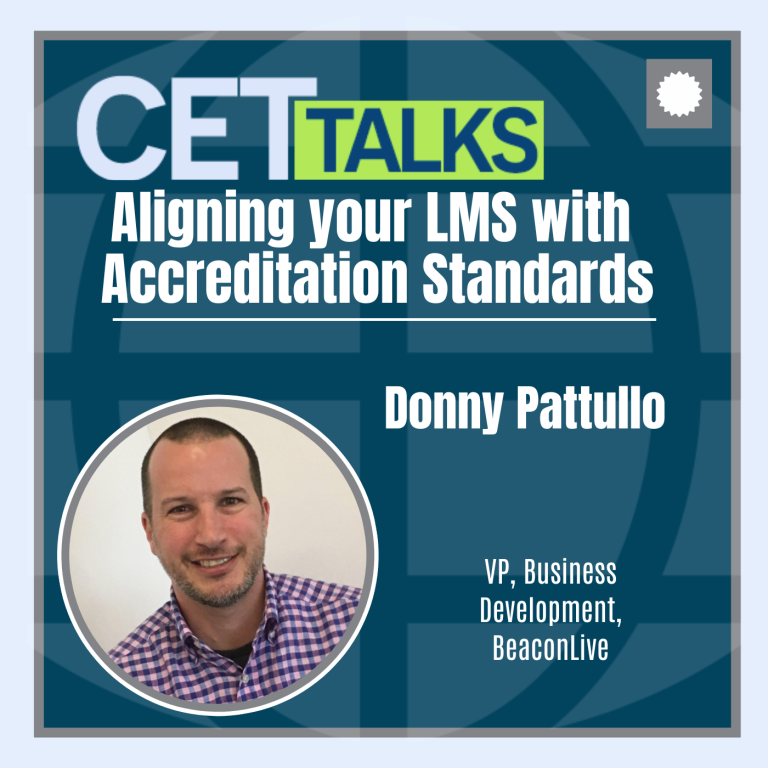.
CET Talks: Accreditation, Learning and Leadership
Episode 12
NOVEMBER 14 2023 . 34 MINUTES
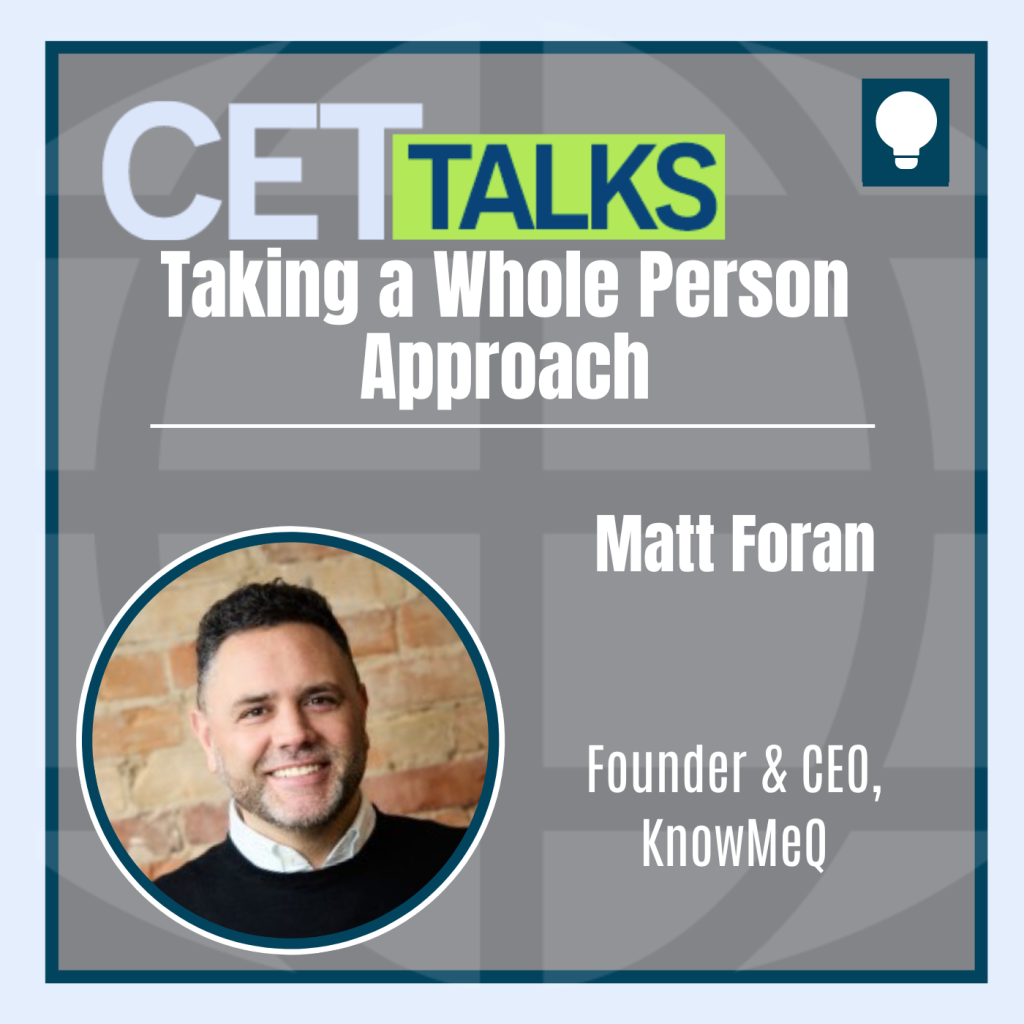
Taking a Whole Person Approach to Skills Assessment
Randy Bowman, Interim President and CEO of IACET, and co-host, Mike Veny, CEO of Mike Veny, Inc., an IACET Accredited Provider, speak with Matt Foran, co-founder of Simple Movement eLearning and founder of the skills assessment platform KnowMeQ. They discuss trends in upskilling and reskilling, and creating a culture of lifelong learning. Matt emphasizes taking a strengths-based, whole-person approach to understanding the complex skills individuals possess beyond just test scores. You’ll also hear about how AI can play a role in career mapping if partnered with human guidance.
Listen to the Podcast
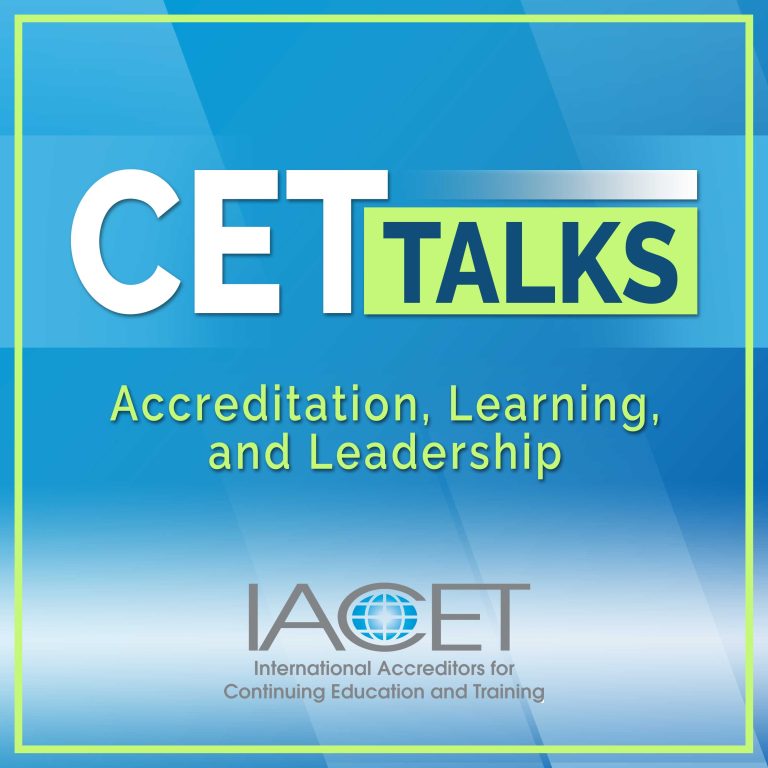
Welcome to CET Talks, the International Accreditors for Continuing Education and Training’s podcast, where we convene thought leaders in the continuing education and training ecosystem to share ideas, research, best practices, and experiences that promote the creation of a world that learns better. Your hosts are Randy Bowman, Interim President and CEO of IACET, and certified corporate wellness specialist Mike Veny.
Randy Bowman, Interim President and CEO of IACET, and co-host, Mike Veny, CEO of Mike Veny, Inc., an IACET Accredited Provider, speak with Matt Foran, co-founder of Simple Movement eLearning and founder of the skills assessment platform KnowMeQ. They discuss trends in upskilling and reskilling, and creating a culture of lifelong learning. Matt emphasizes taking a strengths-based, whole-person approach to understanding the complex skills individuals possess beyond just test scores. You’ll also hear about how AI can play a role in career mapping if partnered with human guidance.

Transcription
Host: Welcome to CET talks, the International Accreditors for our Continuing Education and Training’s podcast, where we convene thought leaders in the Continuing Education and Training ecosystem to share ideas, research best practices, and experiences that promote the creation of a world that learns better. Enjoy the episode.
Randy Bowman: Hello, and welcome to CET talks. My name is Randy Bowman, and I’m here with my co-host, Mike Veny, a certified corporate wellness specialist and CEO of an IACET accredited provider. Hi, Mike.
Mike Veny: Hi, Randy. Hello to everyone listening. I’m the CET co-host. Randy, I had a question for you before we get started. I was thinking about the future of podcasting and how do we make sure our skills as hosts continue to grow?
Randy Bowman: Man, that’s a great question. I think everyone focuses on self-development and self-assessment and trying to figure things out, but I wonder if there’s any tools out there that can help us figure out what skills we need in order to improve.
Mike Veny: Yes, and I think that’d be a perfect question for our guest today, Matt Foran. He is a Toronto based co-founder of Simple Movement E-Learning and Founder and CEO of KnowMeQ, a Business to Business and Business to Education Skills Assessment Platform. He’s also a published researcher and in 2010, founded the world’s first fully online adult literacy program for deaf and hard of hearing adults. In 2022, Matt launched KnowMeQ, a science validated skills assessment platform for companies to use for effective worker recruitment, promotion, and retention. The working thesis of KnowMeQ is informed by Delphi maxims of “know thyself”. Put another way, of all the Qs in the world—IQ, EQ—the most important Q is to “know me,” KnowMeQ. Matt, welcome to the show.
Matt Foran: What a great honor. Thanks, Mike. Thanks so much for having me, Randy. It’s a pleasure to be with you guys today.
Mike Veny: Matt, welcome to the show. Before we get started, I want to talk about your journey from founding the world’s first fully online adult literacy program for deaf and hard of hearing adults to launching KnowMeQ. Before we go into KnowMeQ, can you share how your passion for accessible learning has influenced the development of KnowMeQ’s skills assessment platform?
Matt Foran: Absolutely. Like many people, my professional and educational experiences didn’t follow a straight path. I’m a person who does have my own learning disability, and I had to be one of those people supported throughout school. I was fortunate to have a literacy specialist mother who worked with me every year, but it seemed like every year through elementary school and secondary school and then through my undergrad, I was constantly working with tutors. I recognized that I had a lot of interests, but I needed to work harder at a lot of things than most people and made a few more mistakes than most people did getting from point A to point B. I found myself working in adult literacy after a failed attempt at playing in a rock band that I was touring with. I ended up teaching and so on, but I ended up doing some life coaching to figure out where I wanted to be. I discovered that I wanted to be doing more cause-based stuff, and it landed me working in adult literacy at a community literacy organization in Toronto, Canada. I was working with very marginalized individuals, people who were, in some cases, newcomers to the country, but others who were born here and raised here. They still had lower than functional opportunities to navigate the city to find opportunities for employment. They were constantly going through an upskilling type of experience that was short-term, trying to get jobs, and they were getting laid off from different jobs, and so on. I saw that there was an opportunity to support people through some of the research that I was doing. I worked with persons who were deaf, blind, and hard of hearing, and I saw an even greater opportunity to support this group of people. If you’ve worked in those populations in particular, you’ll recognize that English is a challenge for almost every deaf person in North America. It’s an opportunity for tremendous work that I really tried to support. I became an accessibility consultant and then created some programs that based some of the work on contextualized language and skill acquisition. It’s still going to this day, thankfully, and it’s a great platform. In short, I think that when we see some of the challenges that we, as individuals, may have had or experienced, that’s the things that we tend to find opportunities for; to see there’s some light to shine that could create growth opportunities for others.
Randy Bowman: Wow. Matt, thank you. That’s so inspiring that you saw some brokenness in the world and took some time to fix it, to address it. Just inspiring. As you were talking, you did drop one of the buzzwords that’s really popular right now—upskilling, We see it everywhere—upskilling and reskilling. These are hot buzzwords right now. Why do you think that is? What do you think are the underlying social and economic trends that are pushing these to the forefront of everybody’s minds? What are your thoughts on those topics?
Matt Foran: Both of those words are hot buttons, and I think they should be among the domestic government’s and local government’s principle priorities for supporting people. I think there are a number of reasons why they are very important principally, and I think this can speak to any policy people here. There’s an economic opportunity by providing individuals with an opportunity to upskill. There’s an economic tailwind that comes behind it. In some of the statistics and research, in Canada at least, for a 1% increase in literacy rates, there’s an economic opportunity that realizes in a 1.5% GDP increase. Of course, then you can take that number across the border to the US, as well. The OECD countries, and there are 27, of which of Canada and the United States are members of since 1994. Approximately 52% of workers lack functional literacy and numeracy skills to meet the core demands of their jobs. This is unacceptable. I think we have to look at ways we can create systems which can offer lifelong learning for everybody. As we’re seeing some significant disruption as a result of automation, global competitiveness, and of course AI, opportunities for workers to upskill shouldn’t just be afforded to the C-suites. This should be for everybody, because the last I checked, we’re only as fast as our slowest runner—any team. I think this is why it’s such an acute priority that really needs to be something that’s handled from an institutional level, at a post-secondary, in trades, and so on. Organizations, companies themselves, need to be on board with providing opportunities for individuals to upskill, to get beyond the jobs of today. Those jobs are not going to exist tomorrow, but we need the workers around tomorrow. There’s such a huge need. Every sector has a shortage of skilled workers, as well, so it’s a really big thing. I think there are some real truths coming out of the COVID experience. We’re going to see that education has been broken for a lot of secondary school individuals who are coming up. I was in California last week, and there was a psychometrician who was talking about what they’re forecasting in five years’ time, where there’s going to be a functional illiteracy rate of graduates of high school in America, close to 70%. We’re going to have to, as a society, figure out ways to polish up some skills. I think that the IACET members are going to be central to that cause.
Mike Veny: Before we dig deeper into that, you said something before you were in a band.
Matt Foran: Yes.
Mike Veny: I just have to ask a fellow musician here, drummer. What was your instrument?
Matt Foran: Oh, great question, Mike. You know, at the beginning of the band, I was a shady, not so talented lead guitarist, but then I ended up switching to four strings and playing bass. One of the crowning achievements for my band was that we ended up touring with a pretty popular American band called “The National” who, if you’re familiar with Barack Obama’s first two election songs, they’re both National songs, played on the piano. That was one of our big things. I still play music right now. Bass is my go-to instrument.
Mike Veny: When it comes to music, I know us musicians love working on our skills. Going back to what we were just talking about with upskilling, it seems like skills are the new 401k that people want from a job. How important is it for companies to have quality assessments for assisting employees with upskilling and reskilling?
Matt Foran: I think it’s critical. I think that the important thing to really think about with respect to skills is that we all use different skills every day, but we also tend to use the same skills in our jobs. I think when we get comfortable with our jobs, we tend to use the same sets of skills. Arguably there’s different experiences that can challenge us in different things, but the longer we’re out of formal education, formal training, the more those other skills that we may have learned previously become rusty. An example of this is in 2019, there was, in Alberta, Canada, a labor study that looked at people who were working as masters of engineering in oil fields. They were people looking to get into different jobs. They did a study on the reading levels of these individuals, and people who’d gone to master’s programs were actually reading at a grade six level because they were using the same types of documents over and over again. They weren’t necessarily anchoring in new skills throughout. As you mentioned before, the thesis behind KnowMeQ is a variety of assessments for the whole person. Not just a personality assessment—that’s your measure of who you are, whether you’re a green turtle or whatever the tool might suggest you are—but a variety of different things, recognizing that skills can evolve and can change. But the principle of that is I need to be able to determine where I’m starting from. If I don’t anchor to say where I’m starting from, then we can’t determine some trajectories to get there, whether that’s an intervention or that’s an opportunity. That’s where providing individuals with some sound assessments, to be able to measure their skills to say, “Here’s where you’re starting from.” This is where we can start to make those real learning plans, development plans.
Randy Bowman: You’ve emphasized that “know thyself” is a guiding principle. Talk to us more about that. How can individuals and organizations, particularly training providers who are striving to have the highest standards possible, achieve this deeper understanding of their learning and development needs?
Matt Foran: Certainly. When we’re working with learners and participants, they’re whole people. I think back to some of my work I was doing as a teacher and as an administrator in an adult literacy program. I work also with individuals who have mild intellectual disabilities, people who have regular literacy issues, and so on. There was a conventional approach that an institution may take that there people at this literacy level, but let’s also look at this person more deeply. They’re a single parent. They’ve been able to understand how to get by on $400 a month in a massive metropolitan area. They’ve got three part-time jobs, and they’ve got other life skills. There’s a whole person here. Recognizing that there’s a whole person here who’s got a whole lot of survival skills is a great starting place. I think the vantage point that we would always try to emphasize is from a strengths-based perspective. I think that looking at that person saying, “Here’s where they’re at today. Let’s get some ways to be able to articulate, “Okay, so maybe you do have a numeracy challenge right now, but that’s not a numeracy challenge forever.” There’s all sorts of gains that people can make. The things that we measure with KnowMeQ, we look at emotional intelligence, we look at digital competencies, problem solving. We also do some personality assessments, as well. We also measure adaptability; adaptability is one’s ability to be successful in uncertain times. I think that is a present need and a very important thing because there’s all sorts of uncertainty today. Who knows what three months from now and five years from now is going to look like? How do you cope with change? How do you cope with change from a social, professional, interpersonal experience? That’s how we measure all those different things.
Mike Veny: A phrase that’s coming up for me as you’re talking is ‘self-awareness’ and you’re helping people with that too. This is a very important topic right now for developing the workforce, but I want to go back to your adaptability quotient there. How did you come to develop this, what’s the science behind it, and why do you think it’s an important measure for organizations to know about?
Matt Foran: It came about as trying to unpack why some of the experiences I would see professionally, as an educator, working in employment services and also training, where I would see organizations lean on one type of an assessment, whether it’s a literacy assessment or a personality assessment. I would often say, “That’s not the whole person.” That was the catalyst for thinking about having multiple assessments that would speak to the complexion of the individual. Then, wrestling with that a little bit further and thinking about, “My God, this world is moving fast.” Since I started that work, things move faster and faster. The idea about adaptability and being able to put it onto a measure, to be able to say, okay, here is a combination of a variety of different assessments that can come together. To be able to speak to the person today, where their skills are, and their ability to move forward, to be able to find themselves being grounded with agency for the tomorrows that are to come. What is behind the science? All of our assessments are articulated to international standards in particular, whether it’s the APA stuff for some of our personality assessments, but also towards the PIAAC, which is the Program of International Adult Achievement Competencies, of which Canada and the United States belong to through the OECD. Those levels are all articulated to this. We’re not smart enough to be able to create these as concepts. These are all really well-founded things that tens of thousands or hundreds of thousands of people have taken. We’ve made our own assessments based on these frameworks with our psychometricians. That’s what we can hang our hats on the validity of these measures.
Randy Bowman: We’re in 2023 here. This may be played on into 2024, but the hottest thing in technology right now is Generative AI, Generative Artificial Intelligence. How do you see AI playing a role in enhancing the upskilling and re-skilling for professionals? Are there any specific AI driven solutions or approaches that might be promising in our cutting edge that we need to be keeping our eyes on?
Matt Foran: We’ve been working with AI for a couple of years and trying to approach it from an ethical lens. I think that “ethical” is a very big concept that people may find nebulous. It’s forcing us to make sure the language used in questions is not just appropriate for and understandable by one group of participants versus others. That’s one piece of it. We’re building a solution currently—we’ve got two on the dock, but one that’s actively being built—which is aiming to anchor some greater pathways towards credit acquisition based on skills and transcripts, to make the user or prospective learner or worker qualify for post-secondary credits in Canada and the United States. There are processes called prior learning assessments that we’re working with, trying to understand the landscape in both countries; it’s different. We’re trying to see how we can use AI, with an input of a person’s work experiences, education, or lack thereof, and anchor in some of our assessments to qualify for post-secondary credits, training credits, or digital badges. That’s something that I think is going to be really important. I think it speaks to the ability for workers, in particular, to be able to continue to upskill again on that the adage of lifelong learning for everybody. In my perfect world, there would be a stackable credit system that would be accepting. We’re actively seeking post-secondary groups to work with us, help us understand that process, and we’re working within our province right now to beta test this stuff. On the other side of things, I think that AI has some promise in helping individuals map career and training opportunities through conversational bots, provided the inputs are right, provided there’s someone on the other side who has a heartbeat. I’m gun shy, quite honestly, about the merits of AI. What seemed super promising in January, February, March, some of the sheen has worn off. As you start to look closer at the writing, closer at the responses, you see that there might be something the AI is not quite capturing that a human probably would. I think there’s a need for human validation, and I think it’s incumbent upon us all to take a closer look, and to scrutinize with a healthy a bit of skepticism, at what AI is presenting, as it’s certainly not necessarily canon.
Mike Veny: I was at a conference recently, and we got to use AI in a workshop. I’m not going to name the conference. What was really interesting is it was a learning situation where the audience had to talk to AI and AI had to respond. It was just amazing how all the humans in the room were just trying to break the AI. We’re trying to ask it the most extreme things possible to break it. That’s one of the challenges that’s coming up with AI; forgetting what AI is doing, but people are trying to break the system. Let’s talk about broader trends in the industry. Without giving away your secret sauce, what are some innovative methods or strategies you’ve come across for closing the skills gap and fostering continuous learning among employees and learners?
Matt Foran: I think that the low hanging fruit, really, and the unfortunate thing, is that organizations actually have to do it. They actually have to have professional development plans. They actually have to do performance reviews. The other novel thing they actually have to do is give the worker some agency, to ask, “How are things going? Is this what you want to continue to be doing? What are some of your goals?” It’s shocking to me, over the different user interviews that we’ve done, how many companies don’t do any of those things. They don’t do performance reviews; they don’t check in with people on what their goals are. I think that’s a missed opportunity. With so many industries that are so short on supply, there’s wage sensitive individuals who are leaving such low dollars to go to the company next door because they give them a buck or two an hour more. That person’s walking out and all that knowledge is leaving, as well. I think it comes down to organizations adopting a culture where you have to invest in the people you’ve got, truly and sincerely. The ‘needle in a haystack’ hires, to try to recruit for some specific person or role when you might have somebody on your bench that you can train. It’s a lot cheaper to train from within your bench for the next job than it is to try to find somebody from across town or from two towns over. With that, it’s a culture of respect, agency, and development that’s saying, this company’s growing with all the members and it’s not just specific members. Within the organization, look at doing an analysis of where the individuals’ skills are in the organization. Where are the dark spots, where are some of the bright spots, where can there be some opportunities for cross pollination training opportunities? That is something I think organizations need to do a really good job at. Some industries are very good at that and they’re continuing to lead, but the majority of all the corporations and companies on both sides of the border are smaller, and they’re not looking at that. It’s always just-in-time, and it doesn’t have to take much to do it but do some cheap and cheerful check-ins on skills. Checking on what the person’s goals are, as well, will lead to retention. We’re positioning KnowMeQ as being a solution that will help anchor company retention. That costs communities, that cost companies, and that costs teams locally on the floor saying, “We just lost three people because they left.” The most acute of all the problems is companies not doing anything. The larger statement is to say that we, the collective, royal ‘we’, can’t take people for granted. The success of an organization or community comes down to believing in the strength of people and being able to say that every person matters.
Randy Bowman: Here at IACET, our vision is to build, create, is just to see a world that learns better. What does that mean to you? What does a world that learns better look like to Matt Foran?
Matt Foran: This is when I was fortunate to be in St. Louis with you guys. I think what came out in so many of the great conversations and in the workshops was that recognition that there’s neurodiversity; it’s not just one person in the room that thinks differently. We all think differently, and there are different things that really drive us and motivate us. I think that providing opportunities for individuals to have input on things and processes will help to make processes more efficient, as well. Not everything that everyone suggests is going to be taken and changed, but I think a world that learns better is one that also doesn’t make the same mistakes. I think we’ve made the same mistakes for a long time where we’ve put people in classrooms and said, “This is how we’re going to learn. We’re going to all read the book, we’re all going to do this stuff.” I think that’s not how we get the most effective outcomes. I go back to my grad school experiences, and I think the richest experiences in my Masters of Education came from the critical inquiry and the inquiry-based learning, creating some opportunities for people to critique the process and say, “What about this, what about that?” It encouraged participation and engagement. I think that’s another part of it. When there are only specific members contributing to the process, by virtue of that process, it alienates others along the spectrum. I think that when that happens, disengagement happens. That can foster a lack of trust among individuals because they don’t care, because they don’t see how their input could scaffold its way up. I think along the way, encouraging us all to become better critical thinkers, and through the process of more open inquiry, I think it can help us learn more and not just accept what comes down as some sort of virtuistic principle. We have to be able to interrogate things to make sure we get the best outcome.
Mike Veny: Matt, I just want to say thank you for such a great interview. Lots of notes here, and I just want to share some of my takeaways for the accredited provider who’s listening or organization who’s aspiring to become accredited. I think this conversation we had today is so important. Know thyself, the whole person. We have to focus on measuring things and standards and all that stuff. And that stuff’s important but realizing that at the end of the day, it’s about the learner and focusing on the whole person. That’s what I got out of it. Randy, what about you?
Randy Bowman: Oh, Mike, I agree with you so much. I’m very much aligned with Matt on this whole person concept, and I could probably sit and talk with him for an hour over it. I love that concept “people aren’t a vacuum.” They’re not just our employees, and anybody we interact with; we don’t interact within a vacuum. They have a past; they have a future. They have so much more of them than what we see right here, right now. I love that concept. I also loved the idea that our formal education system has been broken, and it’s incumbent upon us in the continuing education and training industry to ensure that workers have the skills they need to function. Not just for us, for their jobs, but for them, for their lives. A satisfied worker is living a satisfied life.
Mike Veny: Absolutely. And those are the people who are engaging with society, and those people make differences in their families and in their communities.
Randy Bowman: Thank you so much, Matt, for joining us today. It’s been incredible. I look forward to future conversations with you.
Matt Foran: Love it. I’m a very proud member. Thanks, guys, for making time and looking forward to speaking soon.
Randy Bowman: As we head out today, I want to ask you, our listeners, in the spirit of “know thyself,” how do you assess your own skills in areas for improvement? Share your self-assessment techniques with us. We’d love to have you find us on LinkedIn or on Twitter at IACET.org and share your vision. Don’t forget, you can submit topic ideas, suggestions for guests and other feedback on CET talks podcast page of the IACET.org website. We certainly hope you’ll subscribe to the podcast on your favorite podcast platform, so you don’t miss any episodes. Thank you so much for joining us today.
Host: You’ve been listening to CET talks, the official podcast of IACET. Don’t forget to subscribe to the podcast on Spotify, Apple podcasts, or wherever you listen to podcasts. To learn more about IACET, visit IACET.org. That’s I-A-C-E-T.org. Thanks for listening, and we’ll be back soon with the new episode.
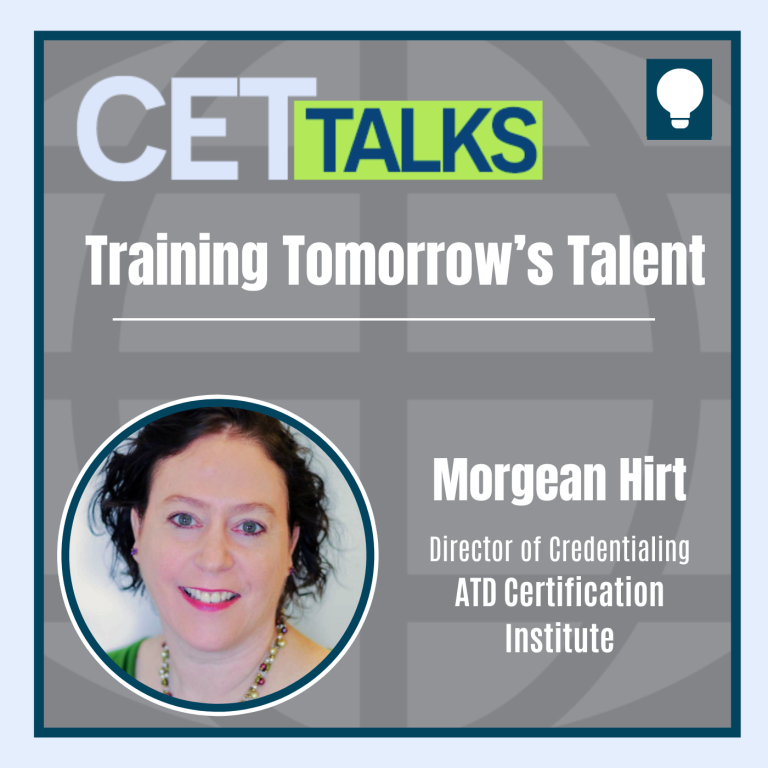
Episode 31: Training Tomorrow’s Talent: Exploring Certification, Standards, and Impact with ATD’s Certification Institute
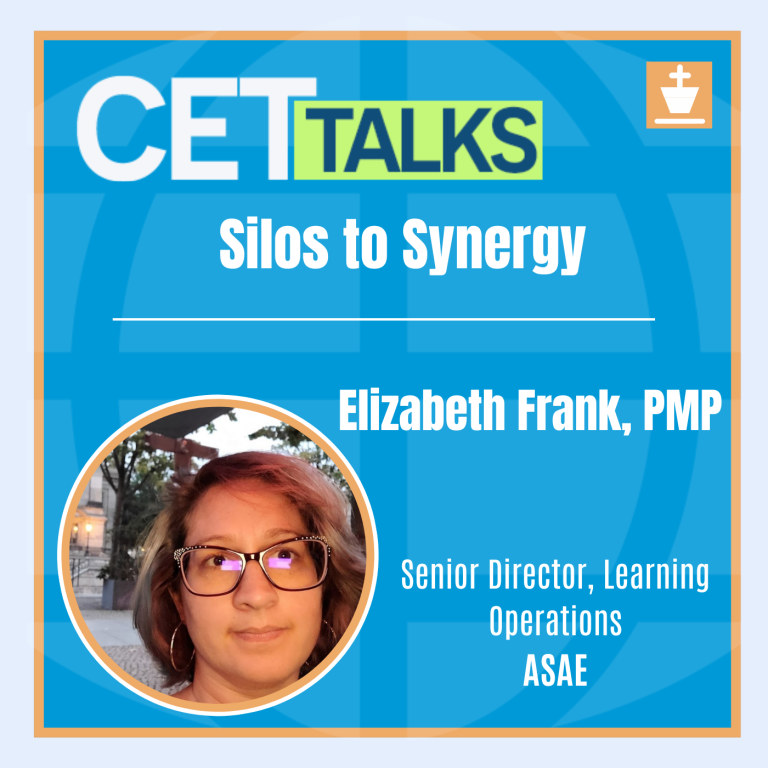
Episode 30: Silos to Synergy: Holistic Approaches to Creating Collaborative Learning

Episode 29: Credentials in Crisis: Challenges and Opportunities in Modern Education Recognition
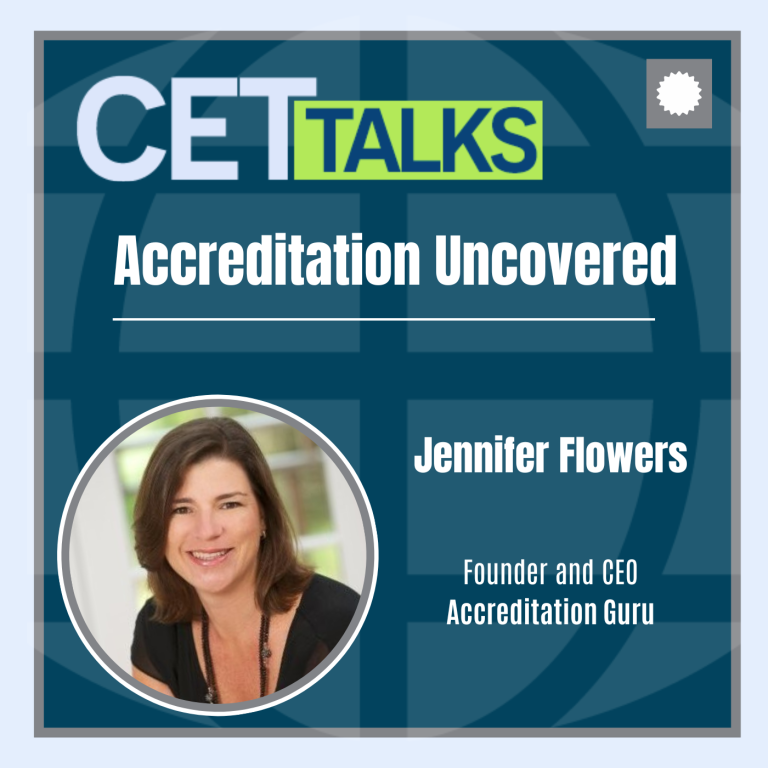
Episode 28: Accreditation Uncovered: Essential Insights from an Industry Leader
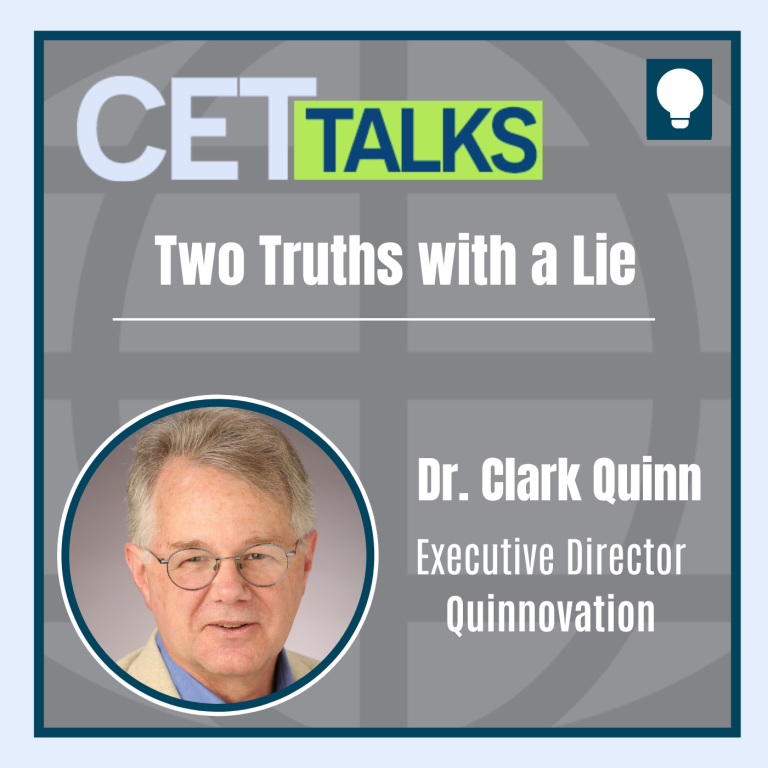
Episode 27: Two Truths with a Lie: Managing the Myths of Modern-Day Learning
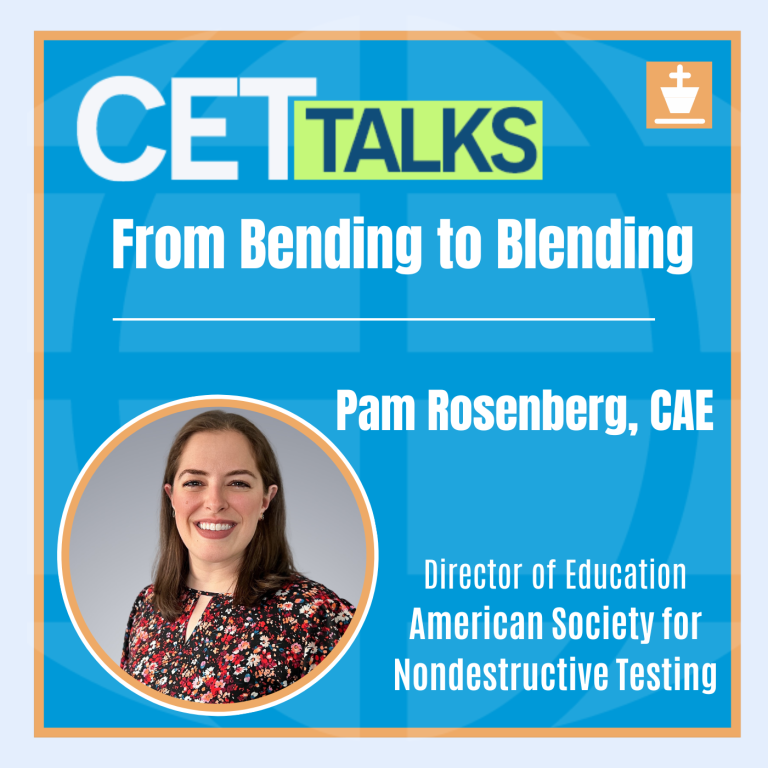
Episode 26: From Bending to Blending: Best Practices in Integrating Externally-Created Content
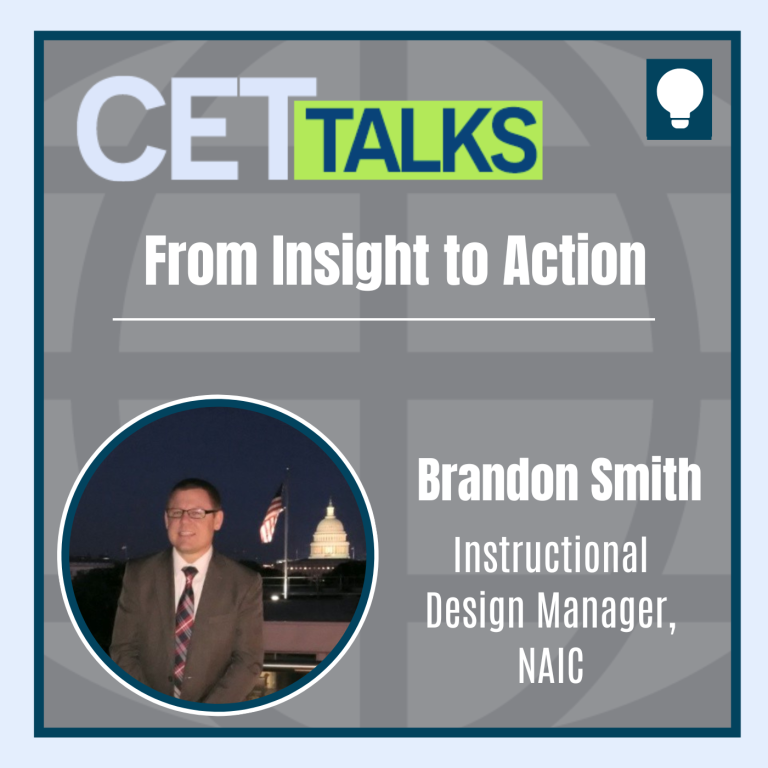
Episode 25: From Insight to Action: Charting the Career Path of a SME-turned-ISD
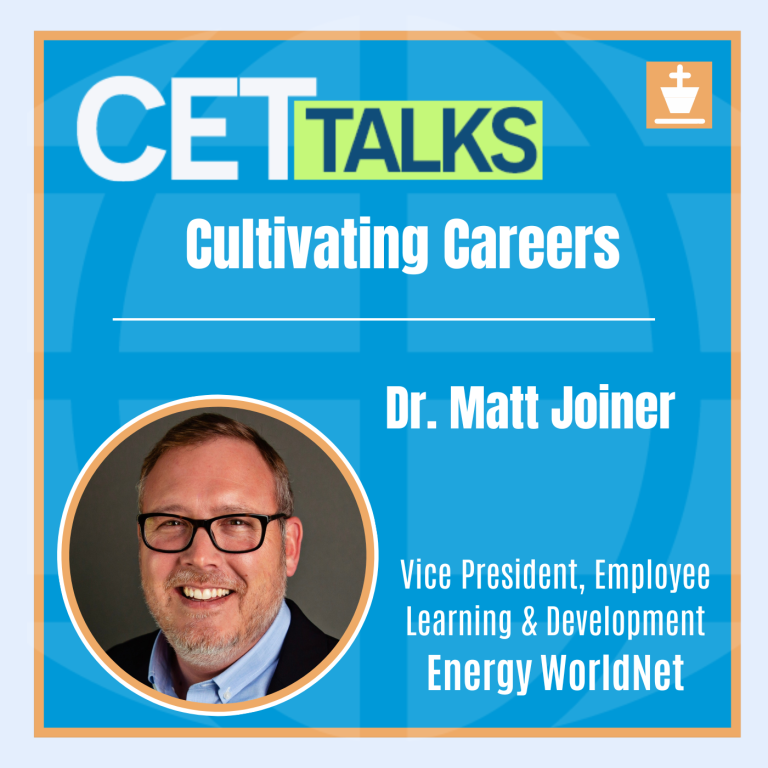
Episode 24: Cultivating Careers: The Power of Employee Engagement for Organizational Success
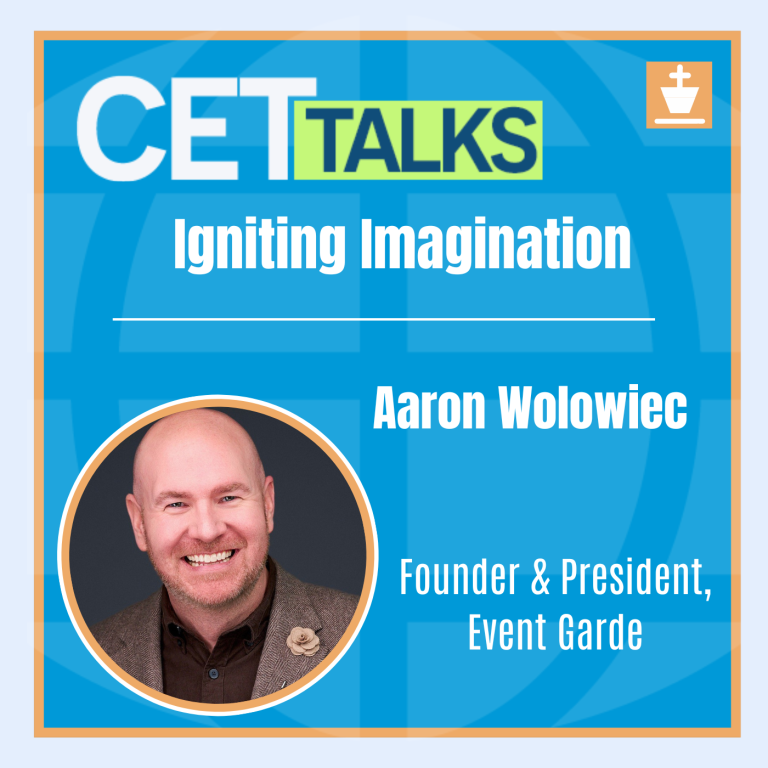
Episode 23: Igniting Imagination: Crafting Creativity in Training Environments
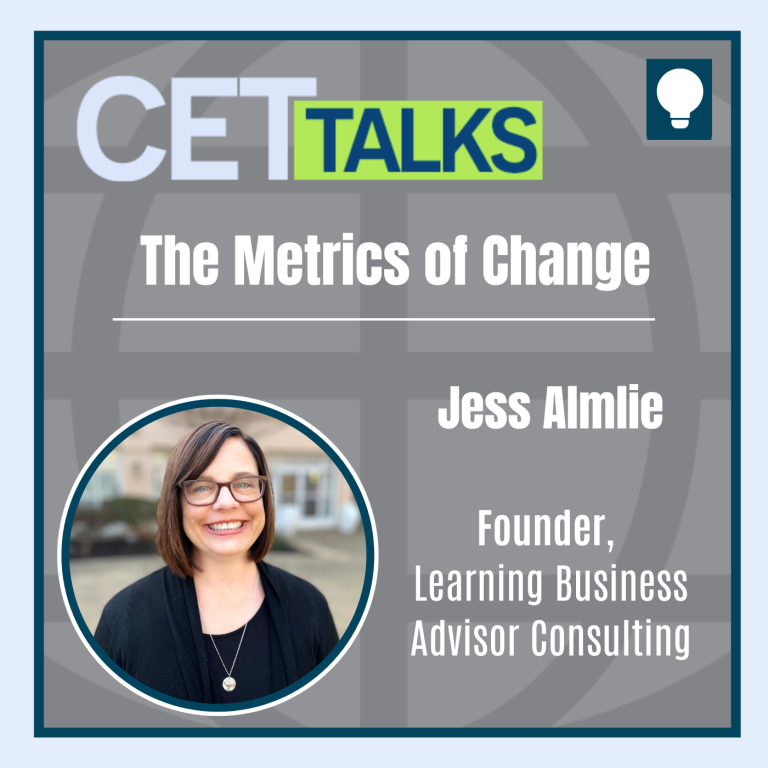
Episode 22: The Metrics of Change: Navigating Purposeful Measurement in L&D
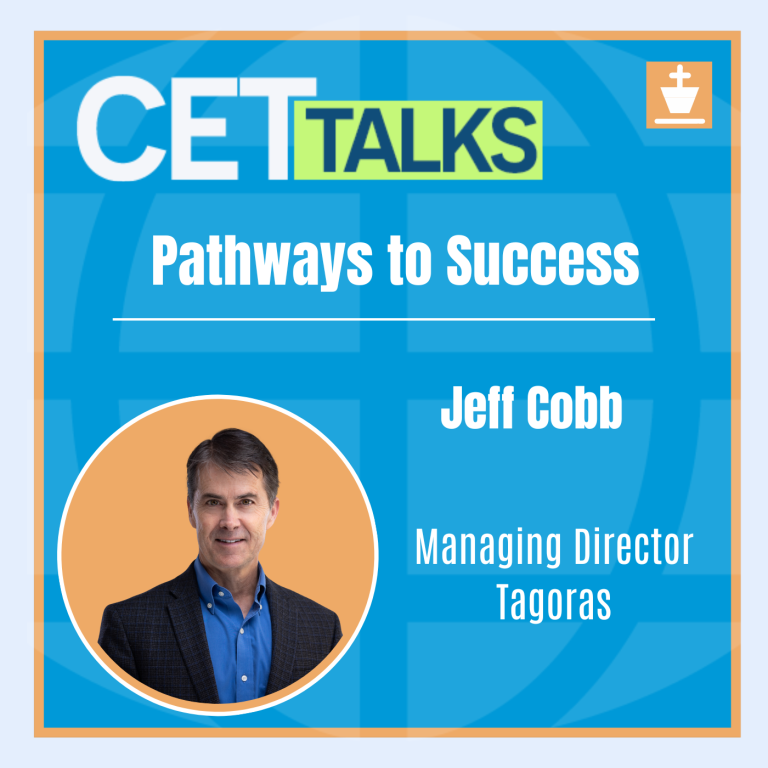
Episode 21: Pathways to Success: The Value of Lifelong Learning through Digital Credentials
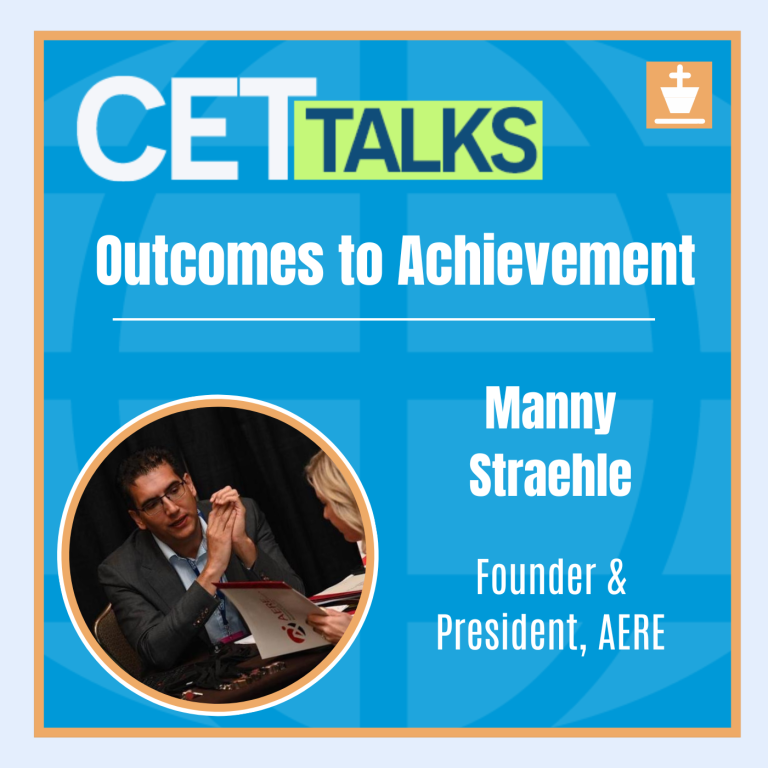
Episode 20: Outcomes to Achievement: Crafting Tomorrow’s Workforce Through Competency Models
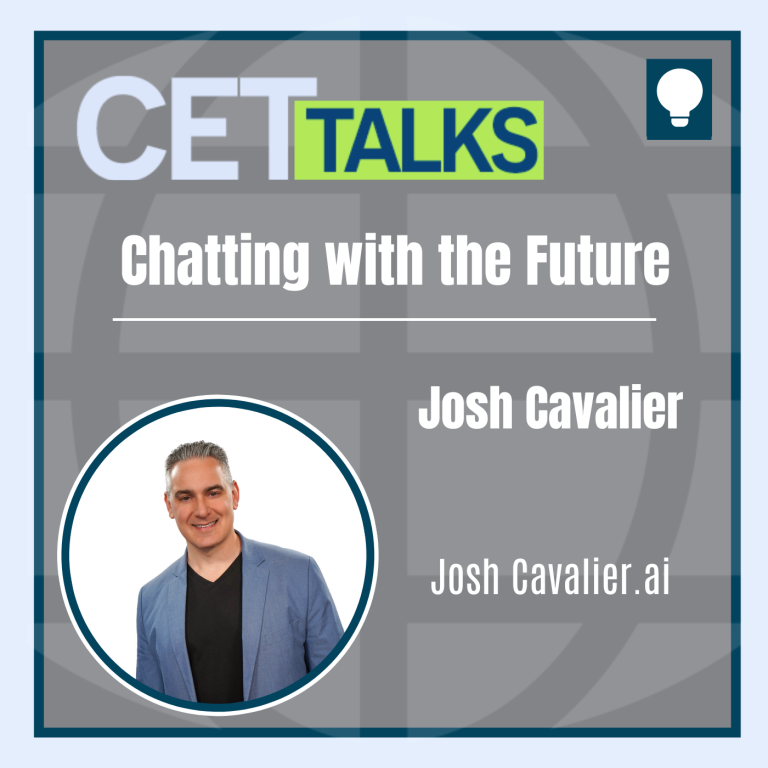
Episode 19: Chatting with the Future: Enhancing AI Output Through Prompt Engineering
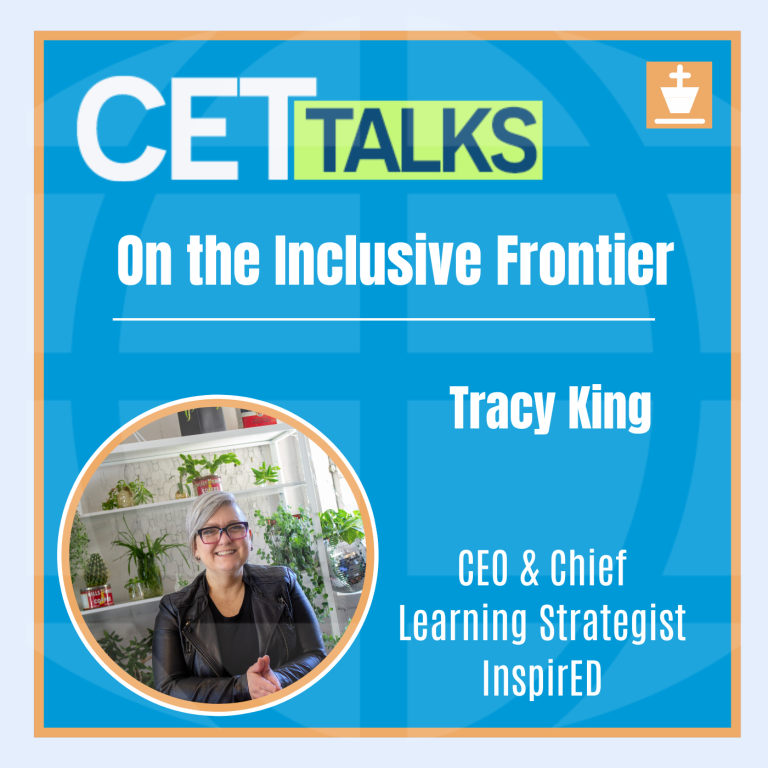
Episode 18: On the Inclusive Frontier: Harnessing Neurodivergence in Modern Training

Episode 17: Designing with Purpose: Strategies for Accessible e-Learning Development
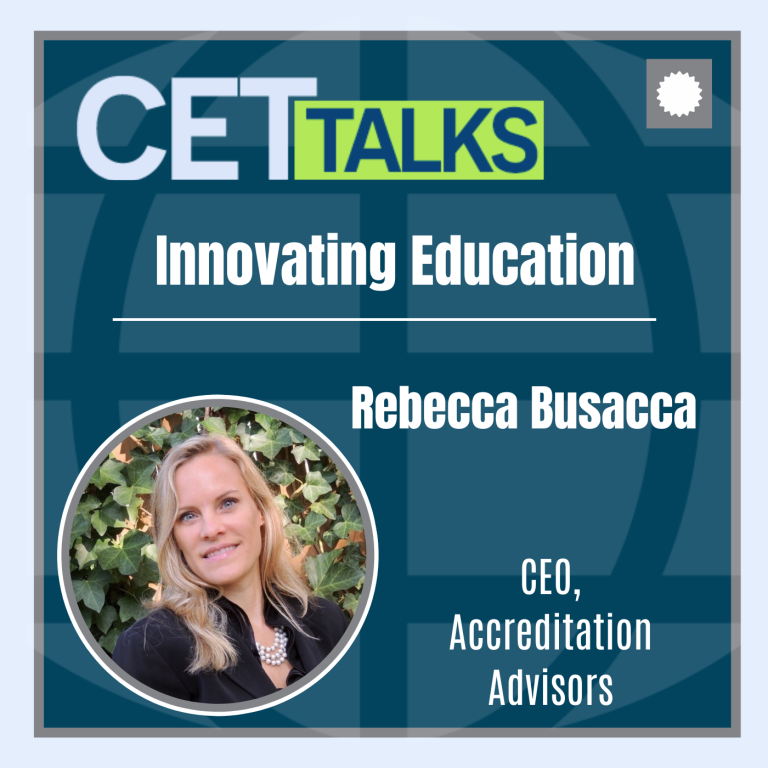
Episode 16: Innovating Education: Navigating Accreditation for Short-Term Training
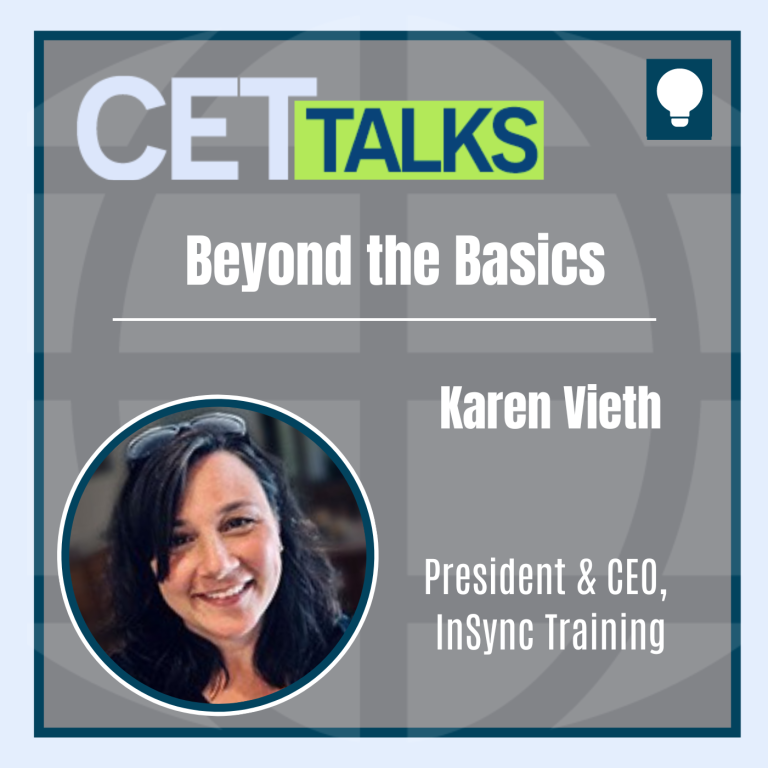
Episode 15: Beyond the Basics: Elevating Virtual Training through Expert Facilitation
